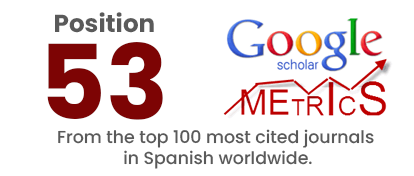Exploration of Binary Oppositions in Nizami's Romantic Couplet Poems in Lyrical Literature
DOI:
https://doi.org/10.36097/rsan.v1i37.1282Keywords:
nezami ganjavi, laili and majnoun khosrow and shirin, love, lyrical literatureAbstract
Nezami’s romantic poems have brought about huge evolutions and changes in Iran’s literary space and this issue can be well discerned in the literary works authored after him. The literature of the world incorporates a large part of the human emotions, affections and thoughts influencing all the aspects of social and individual life. Epical, resistance, lyrical, theosophical and other types of literature all point to the large systems of texts each of which embrace truths of the world in a subject-specific manner. The present study explores the binary oppositions in the stories of Laili and Majnoun and Khosrow and Shirin. Interesting results can be obtained in a comparison of the two romantic poetical sets of “Khosrow and Shirin” and “Laili and Majnoun” including the idea that these two poetical sets reflect different cultures and issues. Khosrow and Shirin introduces the pre-Islam Iran’s status along with the customs and traditions of Sassanid kings and an open and well-calculated culture and Laili and Majnoun introduces the tribal life along with an image of the rigid customs and traditions as well as the closed culture of primitive Arabs. Love is earthly and virtual in Khosrow and Shirin and it transcends beyond the tangible world in Laili and Majnoun and seems to be more theosophical. The love of “Majnoun and Farhad” and “Laili and Shirin” and their death are very similar to one another and comparable. In Khosrow and Shirin, Shirin’s face overlooks the entire story and the outstanding role of Majnoun is clearly evident in the story of Laili and MajnounDownloads
References
Shamisa, Sirus, (2003), “literary criticism”, 5th ed., Tehran, Ferdows
Chandler, Daniel, (2009), “basics of semiotics”, tr. Muhammad Parsa, 4th ed., Tehran, Islamic Culture and Art Research Center, Surey-e-Mehr Press
Sojudi, Foruzan, (2004), “applied semiotics”, Tehran, Qesseh
Bertans, Hans, (2006), “basics of the literary theory”, tr. Muhammad Reza Abolghasemi, Tehran, Mahi
Nabilou, Ali Reza, (2014), “investigation of the binary oppositions in Hafiz’s sonnets”, journal of Persian language and literature, Khwarazmi University, 21(74): 70-91
Rezvanian, Ghodsiyeh, (2010), “reading Sa’adi’s Golestan based on the theory of binary of oppositions”, Persian Literature, Tehran University, 1(2): 123-135
Zolfaghari, Hasan, (2014), “a hundred romantic Persian poems”, Tehran, Charkh
Binazir, Negin, (2015), “collapse of binary oppositions and relative approach’s originality in Mowlavi’s intellectual system”, Gilan University, 6(10): 153-181
Ghodsian, Maryam, (2010), “contrast between form and meaning in Masnavi”, faculty of humanities and literature, Birjand University
Hayati, Zahra, (2010), “semiotic investigation of contrastive elements in illustrating the images of the poems by Mowlana”, seasonal journal of literary criticism, 2(6)
Rowhani, Mas’oud, (2017), “binary oppositions in the sonnets by Attar Neishabouri”, bi-seasonal journal of Persian language and literature, 24(81)
Firuz, (2015), “going beyond the binary oppositions in Hafiz’s book of poems”, research journal of lyrical poetry, Sistan and Baluchestan University, 12(23): 227-244
Emami, Nasrollah and Ghasemipour, Ghodrat, “opposition between the narrative element and descriptive element in Nezami’s Haft Paykar”, literary criticism, 1: 145-161
Nezami, Eliyas Ibn Yusuf, (2000), “Khosrow and Shirin”, revised and annotated by Vahid Dastgerdi, by the efforts of Dr. Saeed Hamidian, 16th ed., Tehran, Qatreh
Nezami, Eliyas Ibn Yusuf, (2012) ,”Laili and Majnoun”, revised and annotated by Vahid Dastgerdi, by the efforts of Dr. Saeed Hamidian, 4th ed., Tehran, Zavvar
Zabihpour, Fatemeh, (2014), “investigation of the binary oppositions in sonnets by Hafez Shirazi”, ministry of science, research and technology, Mazandaran University, Humanities and social sciences faculty
Sadat, A’azam, (2015), “investigation of the binary oppositions in Parvin E’etesami’s book of poems”, ministry of science, research and technology, Arak University, Humanities and social sciences faculty
Nezami Ganjavi, Eliyas (1935-1940), “Khamseh”, revised by Muhammad Vahid Dastgeerdi, 1st ed., Tehran, Scientific Publication Institute
Reza’ei Ardani, Fazlollah, (2000), “analytical-comparative criticism of Nezami’s Khosrow and Shirin and Laili and Majnoun poetical sets”, lyrical literature research journal, Sistan and Baluchestan University, fall and winter, 6(11)


















